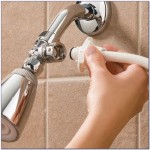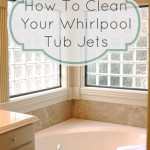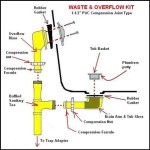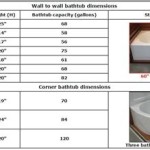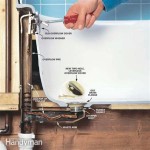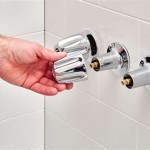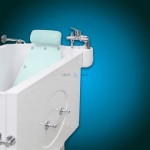Tent Bathtub Floor Materials: Singapore Suppliers
The selection of appropriate floor materials for tent bathtubs is a critical decision, impacting safety, durability, and overall user experience. Tent bathtubs, often employed in temporary housing, camping scenarios, or disaster relief efforts, require flooring solutions that can withstand moisture, resist slippage, and maintain structural integrity over extended periods. Singapore, as a regional hub for construction and material supply, offers a range of suppliers specializing in flooring solutions suitable for tent bathtubs. This article will explore key considerations when selecting tent bathtub floor materials, highlight prominent suppliers in Singapore, and delve into the characteristics of different material options.
Key Considerations for Tent Bathtub Flooring
Several factors must be considered when choosing floor materials for tent bathtubs. These factors directly impact the functionality and longevity of the flooring system. Ignoring these considerations can lead to premature degradation, hazardous conditions, and ultimately, increased replacement costs.
Water Resistance and Drainage: Water resistance is paramount. The chosen material must be impervious to water penetration to prevent mold growth, mildew formation, and structural weakening. Adequate drainage is equally crucial to quickly remove standing water, reducing the risk of slips and falls. Materials should ideally facilitate rapid water runoff and allow for easy cleaning.
Slip Resistance: The flooring surface must provide sufficient traction, especially when wet. A non-slip surface is essential to minimize the risk of accidents, particularly for vulnerable users such as children and the elderly. The slip resistance rating, often measured using a coefficient of friction (COF), should meet established safety standards.
Durability and Load-Bearing Capacity: Tent bathtub floors need to withstand the weight of the bathtub itself, the water it contains, and the users. The material must possess adequate load-bearing capacity to prevent deformation, cracking, or collapse under pressure. Durability also encompasses resistance to punctures, tears, and abrasion.
Hygiene and Ease of Cleaning: The flooring material should be easy to clean and sanitize. A smooth, non-porous surface is preferable, as it prevents the absorption of dirt, bacteria, and other contaminants. Regular cleaning with appropriate disinfectants is necessary to maintain hygiene and prevent the spread of infections.
Thermal Insulation: Depending on the climate and usage context, thermal insulation may be a relevant consideration. Flooring materials with insulating properties can help to maintain a comfortable temperature within the tent bathtub, especially in cold environments.
Portability and Ease of Installation: For tent bathtubs intended for temporary or mobile applications, the flooring material should be lightweight and easy to transport. Simple installation mechanisms are also desirable to facilitate quick setup and dismantling.
Cost-Effectiveness: While quality and performance are paramount, cost-effectiveness is also a significant factor. The selected material should offer a reasonable balance between price and functionality, taking into account the lifecycle cost, including installation, maintenance, and replacement.
Flooring Material Options and Their Properties
A variety of materials can be used for tent bathtub flooring, each offering distinct advantages and disadvantages. Understanding the properties of each material is crucial for making informed decisions.
Polyethylene (PE) Sheeting: Polyethylene sheeting is a common and relatively inexpensive option. It is waterproof, lightweight, and easy to handle. However, PE sheeting typically lacks durability and slip resistance. Its thinness makes it prone to punctures and tears, and it can become slippery when wet. To enhance its functionality, PE sheeting is often used in combination with other materials, such as non-slip mats or drainage grids.
Polyvinyl Chloride (PVC) Flooring: PVC flooring offers improved durability and water resistance compared to PE sheeting. It is available in various thicknesses and textures, allowing for customized slip resistance. PVC flooring is relatively easy to clean and maintain. However, some PVC formulations may contain phthalates, which are potentially harmful chemicals. It's important to select PVC flooring that meets environmental and health standards.
Rubber Mats: Rubber mats provide excellent slip resistance and cushioning. They are durable, water-resistant, and easy to clean. Rubber mats are available in various thicknesses and patterns, allowing for customization to specific needs. However, rubber mats can be relatively heavy and may require specialized cutting tools for installation.
Interlocking Tiles: Interlocking tiles, typically made from PVC or polypropylene, offer a modular and easy-to-install flooring solution. They provide good drainage and slip resistance, and they can be easily removed and reconfigured. Interlocking tiles are available in various colors and patterns, allowing for aesthetic customization. However, the cost of interlocking tiles may be higher than other options.
Composite Materials: Composite materials, such as wood-plastic composites (WPC), offer a blend of durability, water resistance, and aesthetics. WPC is typically made from recycled wood fibers and plastic, making it an environmentally friendly option. It is resistant to rot, decay, and insect infestation. However, WPC may be more expensive than other flooring materials.
Geotextiles: Geotextiles, specifically non-woven geotextiles, can be used as a base layer beneath other flooring materials. They provide drainage, filtration, and separation, preventing soil erosion and improving the stability of the flooring system. Geotextiles are relatively inexpensive and easy to install. However, they do not provide sufficient slip resistance on their own and must be used in conjunction with other materials.
Singapore Suppliers of Tent Bathtub Floor Materials
Singapore's strategic location and developed infrastructure have fostered a robust market for construction materials, including flooring solutions. Several suppliers specialize in providing materials suitable for tent bathtub applications. It is advisable to conduct thorough due diligence to ensure that the selected supplier offers high-quality products, competitive pricing, and reliable service.
Local Hardware Stores: Many local hardware stores in Singapore carry a range of basic flooring materials, such as PE sheeting, PVC flooring, and rubber mats. These stores offer convenience and accessibility, but they may have limited selection and may not specialize in materials specifically designed for tent bathtubs.
Specialized Flooring Suppliers: Several specialized flooring suppliers in Singapore offer a wider range of options, including interlocking tiles, composite materials, and geotextiles. These suppliers typically have knowledgeable staff who can provide expert advice on material selection and installation.
Construction Material Distributors: Large construction material distributors often carry a comprehensive range of flooring products, catering to both residential and commercial applications. They may offer competitive pricing and bulk discounts, but they may not provide the same level of personalized service as specialized suppliers.
Online Marketplaces: Online marketplaces, such as Alibaba and TradeIndia, connect buyers with suppliers from around the world. While online marketplaces offer a wide range of options and competitive pricing, it is crucial to carefully vet the suppliers and ensure that the products meet quality standards.
When selecting a supplier, consider the following factors:
- Product Quality: Ensure that the supplier offers high-quality materials that meet relevant safety standards and performance specifications.
- Pricing: Compare pricing from multiple suppliers to ensure that you are getting a competitive deal.
- Delivery Time: Inquire about delivery times and ensure that the supplier can meet your project deadlines.
- Customer Service: Choose a supplier that offers responsive and helpful customer service.
- Warranty: Check if the supplier offers warranties on their products.
Ultimately, the selection of appropriate tent bathtub floor materials requires a careful evaluation of factors such as water resistance, slip resistance, durability, hygiene, and cost-effectiveness. By understanding the properties of different materials and by selecting a reputable supplier, it is possible to create a safe, durable, and functional flooring system for tent bathtubs.
Proper installation and maintenance are also crucial for ensuring the longevity and performance of the flooring system. Follow the manufacturer's instructions for installation and cleaning, and regularly inspect the flooring for any signs of damage or wear.
What Exactly Is A Tent Bathtub
What Exactly Is A Tent Bathtub

Glamping Tents For By Strohboid Luxury Tent To Buy

Buy A Glamping Tent With Bathroom丨glitzcamp
.jpg?strip=all)
Six Moon Designs Deschutes Bundle Ultralight Backng Tarp 68travel

Camping Fort Tent Pomoly Chalet 70 Pro Best Shelter Hot With Stove

5m Bell Tent Diy Platform With Materials List And Building Instructions

Premium Wedge Tent A Bushcraft Canvas Traditional 100 Cotton Camping Rain Proof Rot Resistant Available In Diffe Colors

Glamping Tents For By Strohboid Luxury Tent To Buy

Cedar Trail 2 Person Domed Tent Burgundy Brand New In Carrying Bag

